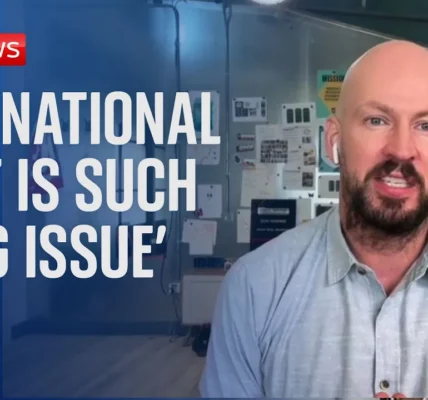The Struggles of Accessing Weight Loss Treatments on the NHS

In this article, we delve into a critical issue affecting thousands of people in the UK: the delays in accessing effective weight loss treatments through the NHS. Despite promising advancements in obesity treatment, many patients are finding themselves caught in a system that struggles to keep up with demand, leading to dire health consequences.
Introduction
Recent investigations have unveiled a shocking reality: thousands of individuals suffering from severe obesity are being denied timely access to essential weight loss medications due to significant delays in the NHS’s rollout of new treatments. The weight loss drug WGOI, which has shown promise in helping individuals manage their obesity, is currently mired in a lengthy waiting list that averages around two years. This situation raises critical questions about healthcare accessibility and the dire consequences for those awaiting treatment.
The Current State of Weight Loss Treatments
As of the end of April, only a mere 800 patients had been prescribed WGOI, despite the Department of Health’s estimates that over 13,000 individuals should be receiving this treatment. The situation has been described as a “postcode lottery,” where access to medication varies drastically depending on geographical location. This inconsistency highlights a systemic issue within the NHS that must be addressed urgently.
Understanding WGOI and Its Benefits
WGOI, along with its counterpart OIC, represents a revolution in obesity treatment, utilizing semaglutide, a hormone that mimics natural processes in the body to suppress appetite and increase feelings of fullness. These medications have demonstrated effectiveness in weight management, leading to a significant reduction in obesity-related health risks.
Patient Experiences
Many patients, like Ken, who struggle with obesity-related health issues, find themselves in a frustrating predicament. As Ken expressed, the need for weight loss is often tied to other health interventions, such as knee replacement surgeries, which are contingent upon achieving a healthier weight. The emotional toll of these delays is profound, as many patients feel trapped in a cycle of poor health and limited options.
The Role of Doctors and Healthcare Policies
Healthcare professionals are aware of the life-saving potential of these drugs, yet the bureaucratic hurdles within the NHS hinder their ability to provide timely care. Dr. Robert Andrews, a leading weight management specialist, emphasizes that obesity is often a complex issue influenced by various factors, including societal stigma and inadequate support from healthcare policies.
The Financial and Societal Implications of Obesity
Obesity is not just a personal health concern; it has far-reaching implications for the NHS and the economy. The financial burden of obesity-related health issues is significant, costing the NHS approximately £6 billion annually. Furthermore, the stigma surrounding obesity often leads to a lack of understanding and support, perpetuating the cycle of weight gain.
Government Response and Future Directions
Despite the pressing need for effective obesity treatments, the government has been slow to act. NHS England has indicated that weight management services are prioritized based on local needs, but this approach has proven inadequate in addressing the widespread demand for obesity treatment. A comprehensive review of policies surrounding obesity treatment and a commitment to equitable access to care are essential moving forward.
Alternatives and Patient Choices
In light of the NHS’s limitations, many patients are turning to private options for weight loss treatments, often at a significant financial cost. While some individuals have successfully accessed treatments through private healthcare, this option is not feasible for everyone, leading to further health disparities. The decision to go private presents ethical dilemmas, particularly for those who have contributed to the NHS throughout their lives.
Conclusion
The ongoing crisis surrounding access to weight loss treatments within the NHS serves as a stark reminder of the systemic challenges facing healthcare in the UK. With thousands of patients waiting for essential medications, urgent action is needed to address these disparities and ensure that effective treatment is accessible to all. As we reflect on these issues, it is crucial to advocate for policy changes that prioritize patient care and address the root causes of obesity. For those affected by obesity, the journey to better health should not be a waiting game. We encourage readers to share their stories and advocate for change in healthcare policies to support timely access to necessary treatments.
“`




